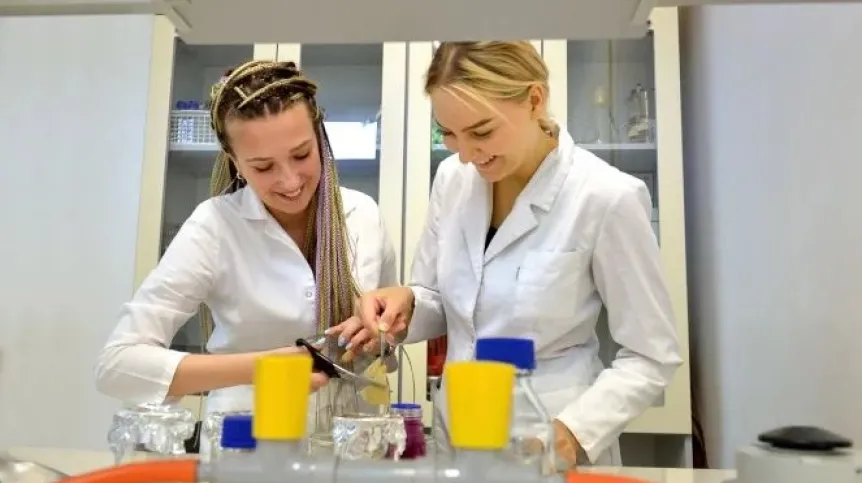
A scientist from the Faculty of Chemistry of the Gdańsk University of Technology is working on a solution for production of vegan sausages and cured meat based on bacterial cellulose. Thanks to its properties, bacterial cellulose is a very good base for various products.
Dr. Agata Sommer from the Faculty of Chemistry of the Gdańsk University of Technology has been researching bacterial cellulose for several years.
'As part of a project named +Bacterial cellulose as a matrix for vegetarian meat substitutes+, funded from IDUB resources (+Excellence Initiative - research university+ programme - ed. PAP), the researcher has been working on solutions with the polymer as the main ingredient of vegan cured meat. The researcher began her work by assessing the composition and nutritional value of a group of products classified as vegan cured meat and sausages, which are widely available to consumers, says the university press release.
'There are more and more vegan products on supermarket shelves. I wanted to check whether it was safe and nutritious for the body to consume them, i.e. whether the product had the right healthy fats and the optimal amount of protein. Studies have shown that many products have a healthy composition in terms of the right fatty acids, but in almost all of them, the problem is too little protein and an excess of salt. This is also a problem with most of highly processed foods,’ says Dr. Sommer.
Bacterial cellulose is already known and used in the food industry.
'It is an edible product that has no taste or calories, and is not digested by humans, but just like fibre, quickly induces a feeling of satiety. It is in the form of a hydrogel. It can be produced on an industrial scale, but also for home use. It occurs, for example, in the form of a tea mushroom in a drink with health-promoting properties, which is becoming more and more popular in Poland - kombucha,’ says the press release.
'Thanks to its properties, bacterial cellulose is a very good base for the production of various products. My research concerns only vegan cured meats, but cellulose is already used, for example, as an additive in desserts. Since it is has no smell or taste, you can give it any desired taste, smell and nutritional value, says Dr. Sommer.
According to the university, in laboratory conditions, cellulose is obtained from both static and shaking cultures. 'Stirring reduces the length of the cellulose fibres, making their consistency looser. After the culture is completed, the material is purified of bacteria and bacterial medium components so that it does not undergo further fermentation. Pure cellulose is subject to further modifications,’ the university reports.
'My goal is to obtain a product with the highest possible taste and nutritional value,’ says Dr. Sommer. (PAP)
author: Dariusz Sokolnik
dsok/ bar/ kap/













